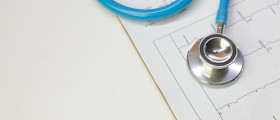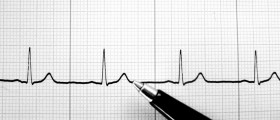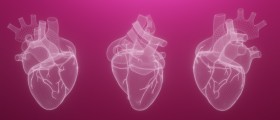
The circulation of the blood
Bloodstream is to organism what streets are to the city. Anything that needs to go or get to one place or another, travels by blood. Blood vessels reach almost to all cells in our body, and stuff needs to travel to the cells on its own only a microscopic part of the way. What makes the system work is the heart. It is a complex pump that sucks in the blood on one end and pushes it out on the other, making it go round and round for as long as you live.
Heart rate
A good indicator of how good, how efficient that system works and how trouble-free it is, is heart rate at rest. It shows how fast the heart must pump to satisfy the needs of resting organism. Lower is better. Heart can only beat so fast (maximum heart rate can be calculated by 220-age formula) and the more it can achieve with less strain, the better. You could regard it as a throttle in your car. If you almost need to floor it just to make the car move, you know that it's no good.
Healthy heart rate at rest
Some experts say that anything between 60 and 110 beats per minute at rest is good. While the lower figure is good, the upper figure is way over the top. Some people that are not pro athletes can cycle at moderate speed on even ground with 110 beats per minute. This is not supposed to make you feel bad. It means that, although such heart rate at rest is not critical and detrimental to your health, it is an indicator that there could be less strain on your heart. Much better heart rate at rest is between 60 and 80 beats per minute. Fit people can easily go well below 60, and pro athletes can almost half that rate and go between 30 and 40 beats per minute.
What determines your heart rate
Your heart rate depends on your age, sex (women hearts beat faster, their average heart rate at rest is 70 to 80 beats per minute), genetics, anxiety (you know how your heart races when you are nervous), fitness level and other factors, such as weight (heart of obese people have more miles of blood vessels and heart has to work harder to push blood through that)
How to improve your resting heart rate
Maybe we could ask, should you? Well, yes. First of all, you will be putting less (unnecessary) strain on the heart and you will widen the margin that remains between your heart rate at rest and your maximal heart rate. That will basically make you much more durable. General idea would be to drop excess weight, if any, and to exercise. But, it would be best to consult a doctor and determine the right way to improve your heart's efficacy.















_f_280x120.jpg)

Your thoughts on this
Loading...